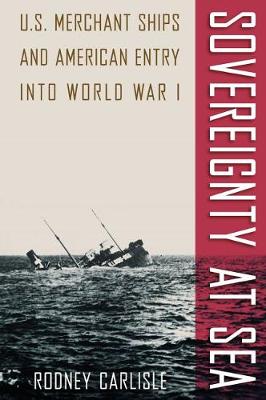New Perspectives on Maritime History and Nautical Archaeology
1 total work
While numerous studies have examined Woodrow Wilson's policy of neutrality prior to U.S. entry into World War I, none has focused on the actual merchant ship losses that created the final casus belli. This work focuses on what the president knew and when he knew it concerning the loss of ten ships between February 3 and April 4, 1917. By looking at the specifics, Rodney Carlisle offers new explanations for the reasons that led the president, the cabinet, the public, and Congress to decide for war.
Sovereignty at Sea not only adds much to our understanding of maritime and diplomatic history during the First World War period but also speaks to contemporary concerns with issues surrounding the U.S. justification for wars.
Sovereignty at Sea not only adds much to our understanding of maritime and diplomatic history during the First World War period but also speaks to contemporary concerns with issues surrounding the U.S. justification for wars.
